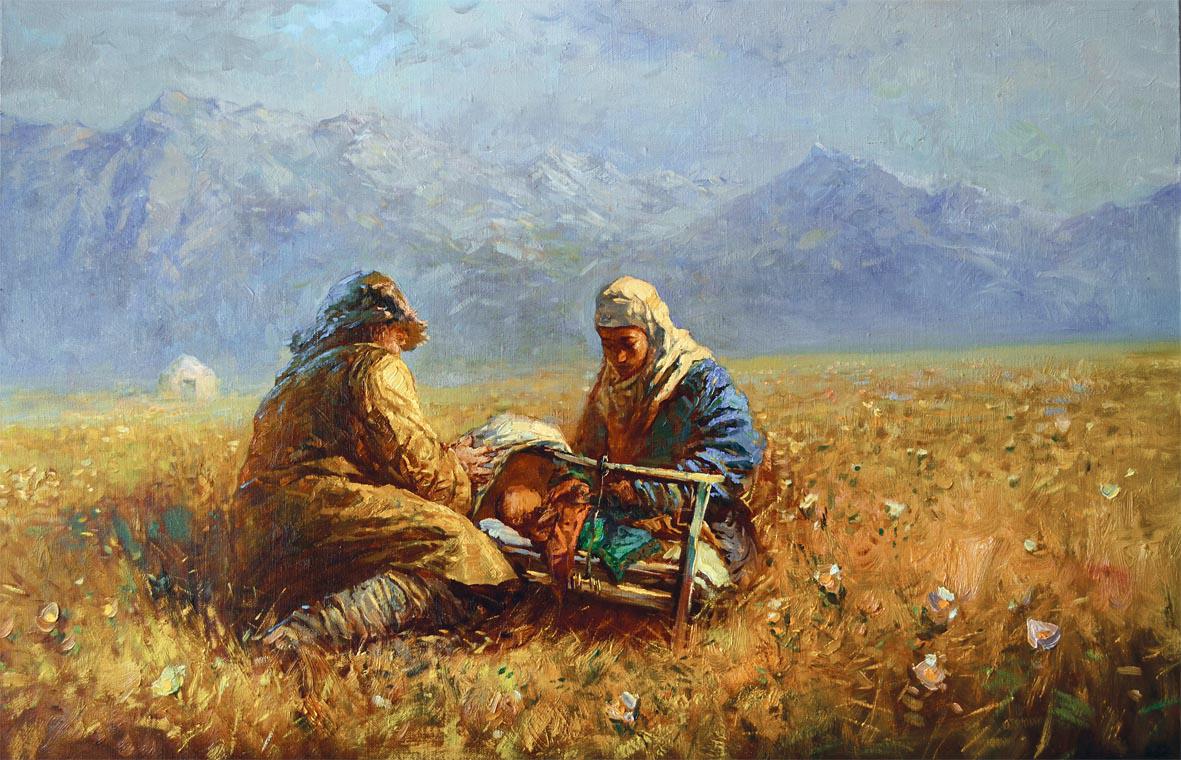
Celebrating new life

Today, many national customs are being revived. One of them is the major and super fashionable holiday of the baby - "Kyrkynan shygaru" ("40 days").
Different people have a lot of books about raising children. Many world bestsellers become reference books for us, while our ancestors for thousands of years set the right model of education, passing it on from generation to generation (for example, they knew the true meaning of celebrating 40 days for a newborn).
From ancient times, the Kazakhs properly educating the younger generation has been a crucial aspect of culture, because children are the sense of life for our people. This has been proven by most of the holidays associated with children. In Kazakh families, each stage of the development and formation of a child is traditionally solemnly celebrated. For instance, before the birth of a baby, the female half of the family prepares for a joyful event and celebrates “Kursak shashu” (“Scattering gifts due to pregnancy”). Only women are invited to this event, who pass the experience of raising the baby to the future mother.
James McKenna, Ph.D., Professor of Anthropology at the University of Notterdam, has been doing research trying to link the maturity of a baby's brain at birth to the anthropological makeup of our species. In his 1994 article in the journal Nature of Children, he wrote: “When the ancient woman evolved to stand on two legs, the structure of her pelvic bone narrowed, resulting in human children being born 3 to 4 months earlier. This process allows babies to be born safely, before the baby's head gets too big." Western scientists name this unique stage in human development the "fourth trimester." Thus, after birth, the maturation of the nervous system and brain occurs. During this period, the baby learns to contact the outside world, his respiratory system is regulated.
After the child’s birth, “Kyrkynan shygaru” is held - this means that a newborn who has reached the 40-day milestone is considered a full-fledged member of the family. For 40 days, rituals such as “Besikke salu” (“Laying in a cradle”), “Sylap-sipau” (“Bathing in saltwater”), “At koyu - Azan Shakyru” (“Name giving”) are performed. This honorary right is given to a noble or famous person who pronounces his name in both ears to the baby, reading a ritual prayer.

To conclude and emphasize, even today the ancient rituals of nomads for raising children, taking into account the biological and physiological changes in the body, developing the child as a representative of the ethnic group, and carrying the ancient wisdom of the Kazakh, remain actual and relevant among our contemporaries.
Author: Madina Kurbanalieva
Photo: from the personal archive of the author
Translator-editor: Chingiz Smakov